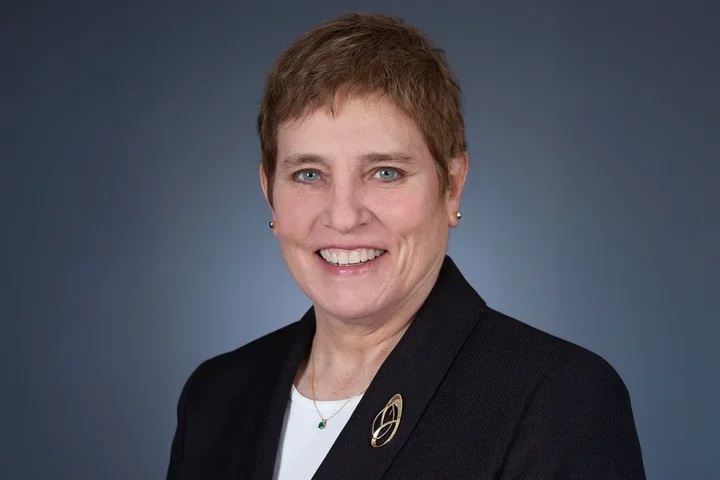What Is a Urologist?
Faculty Spotlight

A Day in the Life of Dr. Sriram Eleswarapu, Urologist at UCLA Health
A urologist is a medical doctor and surgeon who specializes in conditions involving the genitourinary system, which includes the kidneys, bladder, prostate, penis, and testicles. They treat all genders, including transgendered individuals. What they do on a day-to-day basis depends on their specialization and expertise.
General urologists treat all conditions related to the genitourinary system—everything from kidney stones to bladder cancer. Subspecialists focus on specific areas within the genitourinary system and often work in academic medical centers, such as UCLA.

“At UCLA, we have kidney stone specialists who do complex surgery and medication management, urologic oncologists who treat advanced urinary system cancers, pelvic medicine urologists who help men and women manage urinary incontinence, and andrologists who focus on the male reproductive system,” says UCLA Urologist Sriram Eleswarapu, MD, PhD, who specializes in andrology.
He spends his days in the office, helping male patients with sexual and fertility concerns, and also in the operating room, conducting surgery on male sex organs. Despite his niche focus on male reproductive and sexual concerns, he still tends to a diverse range of issues.
Patients come to him for erectile dysfunction, penile scar tissue, fertility testing, low testosterone, and many different surgical procedures, including implant surgery.
"So just like you can get a hip replacement, you can get a penile implant or other prostheses for various conditions," he explains.
As a physician-scientist, Dr. Eleswarapu leads a research laboratory in addition to providing patient care. He and his team publish papers and give talks at conferences around the world—all with the goal of contributing to the advancement of science and medicine and the development of new drugs and therapies.
“In my research lab, I work with different people at different stages of training. It’s fulfilling to work with people who are young and excited about getting into medicine.”
He finds the academic medical center environment particularly stimulating for the research side of his work.
“I'm surrounded by bright people at all academic levels. I can knock on the door of someone who wrote the textbook on female pelvic medicine and ask them a question. I can go down the hall and talk to the testicular cancer expert.”
What Does a Urologist Do?
Urologists treat conditions involving the genitourinary system.
- For all patients, urologists treat conditions affecting the kidneys, ureters, bladder, and urethra.
- For female patients, urologists additionally treat conditions affecting the pelvic floor, such as pelvic organ prolapse and urinary incontinence.
- For male patients, urologists additionally treat conditions involving the prostate, penis, and testicles.
- For transgender patients, urologists address a variety of gender diverse concerns, such as gender affirmation surgery and fertility preservation.
- Some urologists perform kidney transplantation surgery.
“It's a very diverse field. There are a range of things you can do as a urologist.”
(What Does a Urologist Do? Click the link to learn more...)
There’s also a softer, less definable, side to a urologist’s work.
“We're here for our patients, and we deal with extremely sensitive and sometimes embarrassing topics. It’s really gratifying to help patients with concerns they might have been too fearful or embarrassed to talk about previously.”
Just as there are undefinable aspects of a urologist’s work, there are also many misconceptions about what these physicians do.
“A lot of people think there’s something off-putting or objectionable about practicing urology and the people who choose to practice urology,” Dr. Eleswarapu says. “People ask me, ‘What on earth made you want to do this?’”
Many people zero in on the specific parts urologists examine. Dr. Eleswarapu explains what he does is not about the parts. It’s about the people and the conditions. It’s about making a difference in someone’s life, especially during particularly sensitive and difficult times.
“In a way, these misconceptions touch on what makes practicing urology the most gratifying. We help people navigate medical issues they might be a lot more self-conscious about than a persistent cough, for example.”
He also says people sometimes seem shocked when he uses vocabulary appropriate for his field.
“Testicles. Penis. Anus. Vagina. I use these terms freely and openly because they’re simply part of my day-to-day life as a urologist.”
(For another perspective, Dr. Stephanie Chu provides her take on the question What Does a Urologist Do?)
Nephrologist vs Urologist—What’s the Difference?
Nephrologists provide medical care for kidney conditions and kidney failure. Urologists, Dr. Eleswarapu explains, provide surgical care for the kidneys.
“Patients see urologists if there’s an anatomic problem with the kidney, such as a tumor or a stone, that may require surgery.”
Dr. Eleswarapu says urologists and nephrologists refer patients to each other and often work closely together. At UCLA, for example, a urologist will perform a kidney transplant surgery, and a nephrologist helps the patient optimize living with their newly transplanted kidney.
What Kind of Patients See a Urologist
As a urologist you will most likely see patients if they’re experiencing any urinary issue more severe or concerning than a simple urinary infection.
These issues include:
- Bladder leakage
- Difficulty emptying the bladder
- Blood in urine
- Kidney stones
- Pain in the pelvic area
A urologist may also see patients if there’s a history of urinary system cancers—such as kidney, prostate, or bladder cancer—in their family.
“If a patient is of a certain age, their doctor may recommend different screening tests, such as a prostate-specific antigen (PSA) test,” says Dr. Eleswarapu. “If the test results look concerning given their personal history, they may be referred to a urologist for further evaluation.”
How to Become a Urologist
To become a urologist, you must complete medical school, residency training in urology, and potentially additional training in subspecialty fellowship programs.
Dr. Eleswarapu says promising urology candidates possess kindness, curiosity, fortitude, and comfort with having uncomfortable, often sensitive conversations with patients about their sexual and reproductive health. Those who do specialize in this field find it provides freedom to craft fulfilling careers.
“You start out undifferentiated, almost like a stem cell. At first you do many different things, but then you can tailor your career by specializing or perhaps exploring something new, even if you’ve been practicing for several years,” says Dr. Eleswarapu.
His path to becoming a urologist was longer than average. He pursued a combined MD/PhD degree program so he could practice medicine and also conduct laboratory research. His specific interest in urology emerged during rotations in medical school.
“I loved many rotations, but during the urology rotation, I felt the strongest connection to the faculty I worked with and the patients I was seeing.”
He also felt drawn to the surgeries urologists perform and the technology they use. The idea of working with his hands to solve problems excited him.
“Robotic surgery, laser surgery, microsurgery, and implant surgery—these are not common to all surgical specialties.”
He advises students interested in urology to get early exposure outside the classroom.
“Meet with faculty. Meet with residents. You’ll find urologists to be a pretty pleasant bunch. We’re excited to have people in our field, so you'll definitely find mentorship.”
Aspiring urologists should also be prepared to weather a long training journey, and after that, the challenges of practicing urology.
“Much like other medical problems, urologic problems can strike at any time, day or night. You have to be ready to take phone calls or go into the hospital in the middle of the night to deal with a urinary issue.”
How Much Do Urologists Make?
According to recent Medscape compensation data, the average annual urologist salary in the U.S. is $506,000.

Men’s Health Awareness Month
Men’s Health Awareness Month promotes healthier living decisions in men and boys. In that spirit, Dr. Eleswarapu shared a mantra he and his colleagues at the Men’s Clinic at UCLA often repeat to patients: Eat, move, sleep.
“They should be eating right, moving well, and getting high quality sleep. That can take many different forms, but the idea is that if you’re taking care of those parts of health overall, you should be in pretty good shape.”



